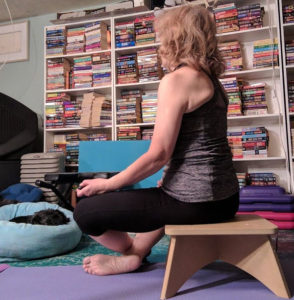
Is stress good for us? There’s a difference between long-term and short-term stress, and our reactions are different.
Long-term stress = not good
We all know that long-term stress is bad for your health. Stress can increase blood pressure and heart rate. Stress can prevent you from sleeping well. Stress can impact your eating and exercise habits. Stress can even have a negative impact on your skin. So, we can safely conclude that it’s best to avoid long-term stress.
But, short-term stress is another story.
Short-term stress can get your blood pumping, charge you up for the challenge ahead.
Studies have shown that stress in short duration can actually help the brain improve. Researchers at the University of California, Berkeley, discovered that after rats were place in a short-term stressful situation (they were immobilized in their cage for a few hours), new brain cell growth doubled. The rodents also did better on a memory test later on. “We think the same thing happens in people—manageable stress increases alertness and performance,” study author Daniela Kaufer, PhD, a professor of integrative biology, told Berkeley Wellness. “Moderate and short-lived stress—like an upcoming exam or preparing to deliver a speech in public—improves cognitive performance.” So be assured that the next time you have to speak before a group of people, your brain will grow!
It makes sense that short-term stress helps your memory too. If you’re being chased, you’ll be forced to remember your path rather than just meandering down random streets or alleys.
And a positive short-term stressor will increase our energy. Situations that challenge us, or are exciting and stimulating, place stress on our mind and body—but the experience doesn’t necessarily cause discomfort. Rather, this kind of stress can motivate us, sharpen our senses, and help us solve problems. Good stress actually creates new neural pathways and stimulates healthful endorphins.
The short-term stress you experience when you exercise is great for your body. (But it’s important not to overdo, especially if you’re not used to intense exercise. The short-term stress you’ll experience on a brisk walk may be all that you need to calm your mind enough to be able to focus.)
In fact, this short-term “good” stress can actually boost your immune system. Another study with rats showed that rats who were stressed briefly had a surge of immune cell response. There’s no reason to believe that we are different.
So, get stressed a little! Lace up your walking shoes or take the dog for a walk.
